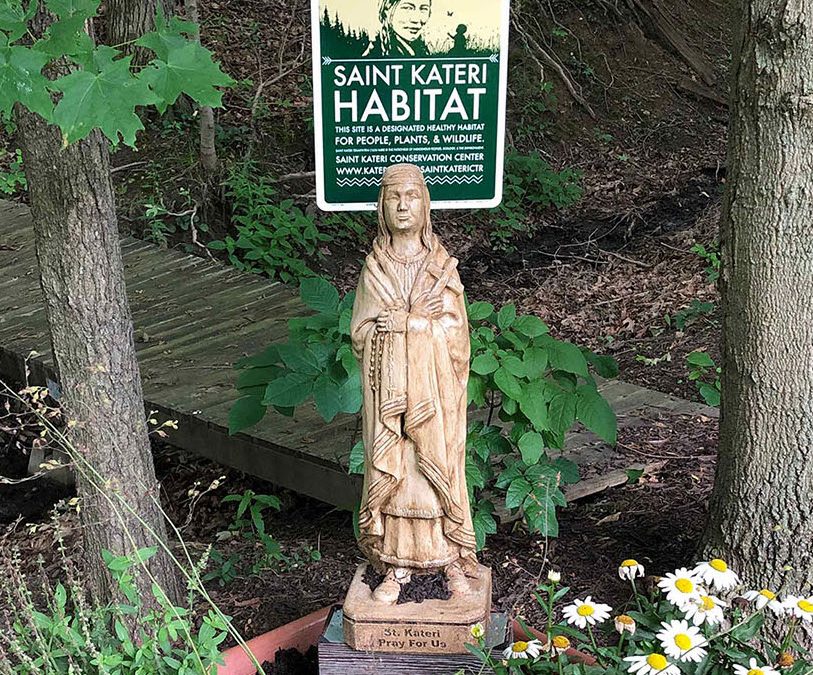The annual ryegrass Margaret Lilley planted at the farm of the Sisters of Saint Francis of Philadelphia was supposed to die in the winter.
But, in another sign of climate change, winter was too warm in southeastern Pennsylvania in the U.S. to kill off the cover crop.
In May, however, Lilley will rip up the ryegrass on the 600-square-foot strip of land to plant a garden that will help the farm fight climate change and bring back vital pollinators.
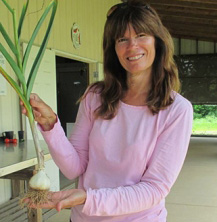

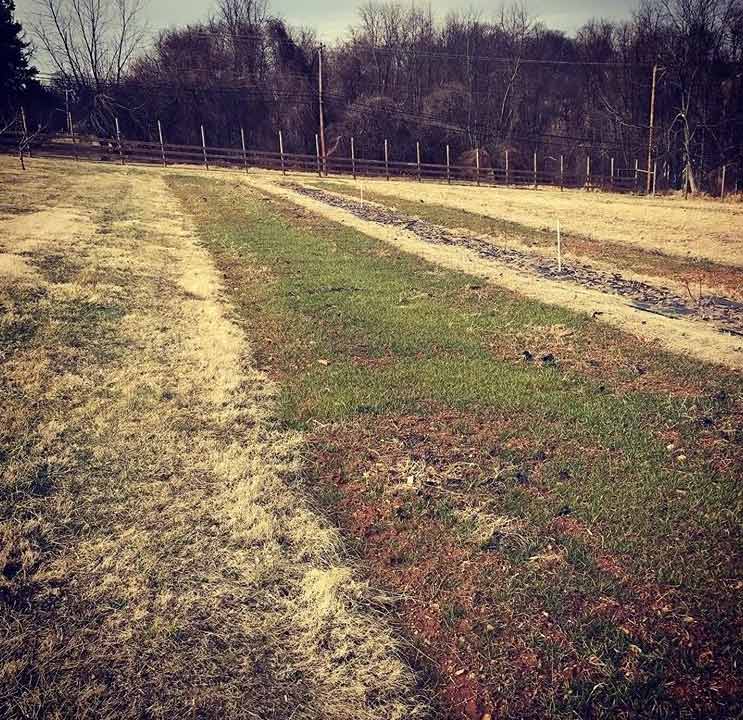
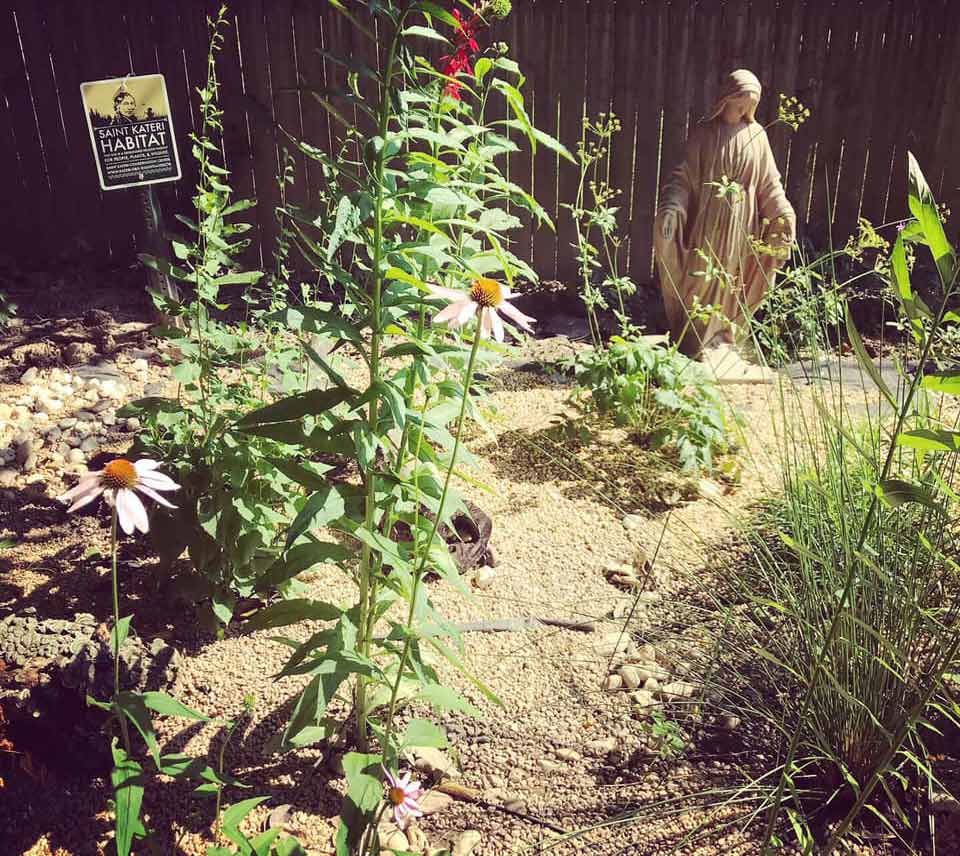
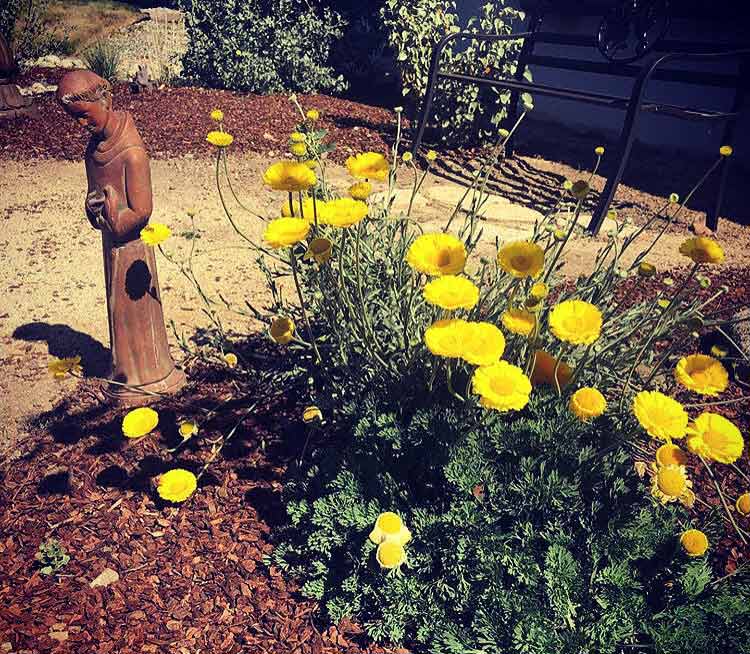
To celebrate Laudato Si’ Week, Lilley, the sisters, and the Saint Kateri Conservation Center will plant the beginnings of a Saint Kateri Habitat at Red Hill Farm in May.
The habitat will feature a biodiverse array of native plants, such as milkweed, golden alexanders, and goldenrod, that will boast different heights and colors and bloom at different times of the year.
“The more biodiverse it is, the more able it is to adapt to climate change,” said Kat Hoenke, volunteer program director for the Saint Kateri Conservation Center, a nonprofit organization run by volunteer staff in the U.S.
The plants will host an equally diverse group of pollinators, such as orchard mason bees, monarch and swallowtail butterflies, and other insects. Pollinators play a vital role in the ecosystem as they transfer pollen grains and fertilize plants, leading to nuts and fruits.
But the insects have been threatened by climate change, which has brought warmer temperatures and the shortening of winters in some parts of the world.
“Three out of four crops across the globe producing fruits or seeds for human use as food depend, at least in part, on pollinators,” according to “Why bees matter,” a report released in 2018 by the Food and Agriculture Organization of the United Nations.
Insects tend to fare better with native plants because some insects have evolved with certain plants. The monarch butterfly’s caterpillars, for instance, eat only milkweed.
“If they can’t lay their eggs and become a butterfly and then pollinate, it’s just a non-starter,” Hoenke said.
She reached out to the sisters, a group that includes her aunt, with the hope of working together.
The farm already uses organic practices, crop rotation, and other environmentally-friendly farming methods, said Lilley, the farm manager. Adding a habitat full of native plants that is named after a patron saint of ecology was a “perfect fit.”
The farm hosts regular events and operates a community supported agriculture farm that grows produce for about 120 members and the 45 sisters living at the convent.
“It’s also an educational component, where we can teach what are the native plants, what pollinators are, and what they can do for the environment,” Lilley said.
Saint Kateri Conversation Center has 50 habitats in the U.S., Hoenke said, and works with organizations and families to convert their plots of land or yards into healthy habitats that honor Saint Kateri Tekakwitha, a patron saint of Native American and First Nations Peoples, ecology, and the environment.
Hoenke said many organizations and households have no idea how much planting native plants can help creation and remind everyone how connected we all remain.
“It’s just changing the mindsets of people, ‘You should plant these to be a part of the system.’ It’s all a part of Catholic ecology, and we should all work in the system that God gave us,” said Hoenke, who studied environmental management in ecosystem science and conservation for her master’s degree.
Her words echo Pope Francis’ from Laudato Si’: “Because all creatures are connected, each must be cherished with love and respect, for all of us as living creatures are dependent on one another.” (LS 42)
The Saint Kateri Conservation Center has a list of requirements that habitats must have, including at least one religious expression, to achieve certification. Hoenke and her colleagues guide any interested parties through the process for free.
“We’re really just trying to have people change the way they manage their landscape and property, and we have the resources and the knowledge to help them,” Hoenke said.
The groups had planned on hosting a larger event for the planting of the farm’s habitat. But because of the coronavirus, Lilley plans to plant the garden with a smaller group during Laudato Si’ Week, 16-24 May.
“Even if it’s just a handful of us working on it, we’ll be able to keep a safe distance from each other,” she said.
There will be plenty of time in the following years for all of the community to celebrate and spend time in the habitat.
“Through the years, it will continue to get better,” Lilley said. “It will fill out and it will get better and better, and it will continue on and be a part of the farm.”

To celebrate Laudato Si’ Week, Lilley, the sisters, and the Saint Kateri Conservation Center will plant the beginnings of a Saint Kateri Habitat at Red Hill Farm in May.
The habitat will feature a biodiverse array of native plants, such as milkweed, golden alexanders, and goldenrod, that will boast different heights and colors and bloom at different times of the year.
“The more biodiverse it is, the more able it is to adapt to climate change,” said Kat Hoenke, volunteer program director for the Saint Kateri Conservation Center, a nonprofit organization run by volunteer staff in the U.S.

The plants will host an equally diverse group of pollinators, such as orchard mason bees, monarch and swallowtail butterflies, and other insects. Pollinators play a vital role in the ecosystem as they transfer pollen grains and fertilize plants, leading to nuts and fruits.
But the insects have been threatened by climate change, which has brought warmer temperatures and the shortening of winters in some parts of the world.
“Three out of four crops across the globe producing fruits or seeds for human use as food depend, at least in part, on pollinators,” according to “Why bees matter,” a report released in 2018 by the Food and Agriculture Organization of the United Nations.

Insects tend to fare better with native plants because some insects have evolved with certain plants. The monarch butterfly’s caterpillars, for instance, eat only milkweed.
“If they can’t lay their eggs and become a butterfly and then pollinate, it’s just a non-starter,” Hoenke said.
She reached out to the sisters, a group that includes her aunt, with the hope of working together.
The farm already uses organic practices, crop rotation, and other environmentally-friendly farming methods, said Lilley, the farm manager. Adding a habitat full of native plants that is named after a patron saint of ecology was a “perfect fit.”
The farm hosts regular events and operates a community supported agriculture farm that grows produce for about 120 members and the 45 sisters living at the convent.
“It’s also an educational component, where we can teach what are the native plants, what pollinators are, and what they can do for the environment,” Lilley said.
Saint Kateri Conversation Center has 50 habitats in the U.S., Hoenke said, and works with organizations and families to convert their plots of land or yards into healthy habitats that honor Saint Kateri Tekakwitha, a patron saint of Native American and First Nations Peoples, ecology, and the environment.

Hoenke said many organizations and households have no idea how much planting native plants can help creation and remind everyone how connected we all remain.
“It’s just changing the mindsets of people, ‘You should plant these to be a part of the system.’ It’s all a part of Catholic ecology, and we should all work in the system that God gave us,” said Hoenke, who studied environmental management in ecosystem science and conservation for her master’s degree.
Her words echo Pope Francis’ from Laudato Si’: “Because all creatures are connected, each must be cherished with love and respect, for all of us as living creatures are dependent on one another.” (LS 42)

The Saint Kateri Conservation Center has a list of requirements that habitats must have, including at least one religious expression, to achieve certification. Hoenke and her colleagues guide any interested parties through the process for free.
“We’re really just trying to have people change the way they manage their landscape and property, and we have the resources and the knowledge to help them,” Hoenke said.
The groups had planned on hosting a larger event for the planting of the farm’s habitat. But because of the coronavirus, Lilley plans to plant the garden with a smaller group during Laudato Si’ Week, 16-24 May.
“Even if it’s just a handful of us working on it, we’ll be able to keep a safe distance from each other,” she said.
There will be plenty of time in the following years for all of the community to celebrate and spend time in the habitat.
“Through the years, it will continue to get better,” Lilley said. “It will fill out and it will get better and better, and it will continue on and be a part of the farm.”

